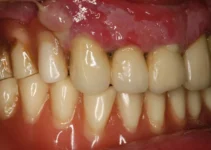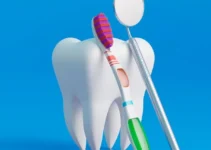The connection between genetics and dental health is a significant area of study within the field of dentistry. Research shows that genetic factors can influence the susceptibility to various dental diseases, such as periodontal disease, dental caries, and malocclusions. This article explores how inherited genetic traits affect the health of your teeth and gums, potentially predisposing some individuals to more dental issues than others. By examining genetic markers and family health histories, dental professionals are now better equipped to predict and manage dental health risks, ultimately leading to more personalized dental care strategies.
Genetic Factors Contributing to Dental Diseases
Dental diseases are influenced by a combination of environmental factors and genetics. Understanding the genetic basis of these conditions can help in the development of personalized treatment plans and preventive strategies. Researchers are increasingly uncovering the role genes play in a variety of dental diseases, from caries to periodontal disease. 
Genetic research has shed light on numerous factors that contribute to dental health. Identifying genetic markers that predispose individuals to conditions such as dental caries and periodontal disease could revolutionize the way we approach prevention and treatment. This section will delve into the heritability of these conditions and how genetics influence their onset and progression.
Heritability of Dental Caries
Dental caries, commonly known as cavities, are one of the most prevalent dental issues worldwide. Research has shown that there is a strong genetic component to the development of dental caries. Studies involving twins have demonstrated that genetics can account for up to 50-70% of the susceptibility to caries.
The heritability of dental caries is affected by multiple genetic factors, including those that influence saliva composition, tooth enamel strength, and the immune response to oral bacteria. Genes such as AMELX, KLK4, and MMP20 have been identified as playing significant roles in enamel formation and integrity. Impaired function of these genes can increase an individual’s risk of developing caries.
Influence of Genetics on Periodontal Disease
Periodontal disease, which encompasses conditions like gingivitis and periodontitis, is influenced significantly by genetic factors. Studies indicate that genetic differences can make certain individuals more susceptible to the destructive effects of bacterial plaque on the gums and supporting structures of the teeth.
Genetic variations in the IL-1 gene cluster have been closely associated with increased risk of severe periodontal disease. This gene influences the body’s inflammatory response to bacterial infection. Individuals with specific alleles of the IL-1 gene are more prone to excessive inflammation, leading to more severe periodontal destruction.
Moreover, research has identified other genetic factors, such as variations in the TNF-alpha and VDR genes, which also contribute to periodontal disease susceptibility. These genes regulate inflammation and immune responses, further illustrating the complex interaction between genetics and periodontal health.
Understanding the role of genetics in dental diseases not only aids in identifying at-risk individuals but also paves the way for targeted therapies and prevention strategies. Stay tuned for more articles delving into the latest research and advancements in dental genetics and personalized dental care.
Common Genetic Variants Linked to Dental Conditions
Genetic factors play a significant role in determining various dental conditions, from enamel defects to periodontal diseases. Understanding these genetic variations helps us enhance diagnostic precision and offer personalized treatments. Recent studies have highlighted the connection between specific genetic markers and dental health, emphasizing the importance of genetic screenings in dental practices.
These genetic variants can predispose individuals to conditions that affect the structural integrity of teeth or make them more susceptible to infections. By examining these genetic links, we can improve both preventative and therapeutic approaches in dentistry. Below, we explore some of the key genetic associations related to dental conditions.
Genes Associated with Enamel Defects
Enamel, the hardest substance in the human body, is vital for protecting teeth against decay and wear. Mutations in certain genes lead to enamel defects, which can make teeth more vulnerable to cavities and other issues. The AMELX gene, for example, is critical for the development of enamel. Mutations in this gene cause a condition known as amelogenesis imperfecta, characterized by thin, fragile enamel that chips easily.
Besides AMELX, other genes like ENAM and MMP20 have been linked to enamel defects. ENAM mutations result in hypoplastic enamel, while MMP20 mutations lead to hypomaturation defects. Understanding these genetic underpinnings helps us develop targeted therapies to manage and potentially correct enamel deficiencies.
Genetic Mutations in Dentin Dysplasia
Dentin dysplasia is another dental condition heavily influenced by genetics. This disorder affects the dentin, the layer beneath the enamel, leading to abnormal tooth development. The DSPP gene is crucial here; mutations in this gene are linked to dentinogenesis imperfecta, a condition where dentin formation is impaired, resulting in discolored, fragile teeth.
Moreover, research has identified other genes, such as COL1A1 and COL1A2, involved in collagen formation that impact dentin health. Mutations in these genes can lead to both dentin and bone disorders, showcasing the interconnectedness of genetic factors in dental and skeletal health.
Impact of Gene Polymorphisms on Gum Health
Periodontal diseases, which affect the gums and supporting structures of teeth, are also influenced by genetic factors. Certain gene polymorphisms have been associated with increased susceptibility to periodontitis. The IL-1 gene cluster is particularly noteworthy; variations here can lead to heightened inflammatory responses, exacerbating gum disease. In addition to IL-1, genes like TNF-α and VDR (Vitamin D receptor) have also been implicated in gum health. These genetic variations can influence the immune response and bone metabolism, respectively, contributing to the progression of periodontal disease. Identifying these polymorphisms can aid in risk assessment and the development of personalized treatment plans.
By understanding how genetic variants affect dental conditions, we pave the way for more precise diagnostic methods and individualized therapies. If you found this article insightful, consider exploring our other articles on cutting-edge dental research and advancements.
Implications of Genetic Research on Dental Health
Recent advancements in genetic research have opened new avenues in the field of dental health. Understanding how genetics influence dental conditions enables dental professionals to offer more precise and effective treatments. Genetic research provides insights into inherent risks for various dental diseases, revolutionizing both preventive and therapeutic approaches.
Moreover, genetic findings allow dentists to tailor treatments specific to an individual’s genetic makeup. Such an approach not only enhances the efficacy of treatments but also minimizes adverse effects. The integration of genetics into dental practice is an evolving field, promising to transform the traditional paradigms of dental healthcare.
Given the growing body of evidence, it is crucial for dental professionals to stay abreast of genetic research. By incorporating genetic data into dental assessments, clinicians can better understand their patients’ predispositions and offer more informed advice.
Personalized Dental Care Based on Genetic Information
Personalized dental care takes into account a patient’s unique genetic profile to devise treatment plans that are customized and more effective. For example, individuals with genetic variants affecting enamel formation might benefit from fluoride treatments or sealants more than others.
Genetic tests can reveal susceptibilities to conditions such as periodontal disease, allowing for early intervention. Dentists can recommend specific oral hygiene products and regimens tailored to genetic predispositions. This personalized approach ensures better management of dental health and enhances patient outcomes. Additionally, genetic insights can help in identifying patients who may be at risk for complications arising from common dental procedures. This enables clinicians to take precautionary measures, thereby reducing the risk of adverse outcomes and ensuring safer and more effective dental care.
Preventive Strategies for Genetically Predisposed Individuals
For individuals identified as having a genetic predisposition to certain dental issues, preventive strategies are crucial. Early screening and diagnostic tests become vital tools. These strategies enable the identification of potential problems before they manifest into more severe conditions.
Preventive strategies could include more frequent dental check-ups, specialized oral hygiene practices, and lifestyle modifications. Dietary advice, for instance, can be customized to avoid foods that may exacerbate genetic vulnerabilities.
Fluoride treatments, sealants, and antimicrobial rinses are other preventive measures that can be particularly effective for genetically predisposed individuals. By adopting these strategies, the risk of developing severe dental problems can be significantly mitigated.
Future Directions in Genetic Dentistry
The future of genetic dentistry holds exciting possibilities. One area of focus is the development of gene therapies to correct genetic defects that cause dental disorders. Ongoing research aims to identify specific genes responsible for common dental problems, opening avenues for precise interventions.
Another promising direction is the integration of artificial intelligence (AI) with genetic data to predict and manage dental health more efficiently. AI can analyze vast amounts of genetic information and correlate it with dental health outcomes, providing actionable insights for clinicians.
Furthermore, the role of epigenetics in dental health is an emerging field. Understanding how environmental factors interact with genetic predispositions could lead to novel preventive and therapeutic strategies. This holistic approach could revolutionize the field of dental healthcare, making it more comprehensive and effective.
For those interested in the transformative potential of genetic research in dentistry, exploring related articles can provide a deeper understanding of this rapidly evolving field. Stay informed to keep abreast of the latest advancements and their practical applications in dental practice.
FAQs on Genetics and Dental Disease Susceptibility
Understanding how genetics can influence oral health is crucial. Here are some common questions about the role of genetics in dental disease susceptibility.
How do genetics influence the risk of developing dental diseases?
Genetic factors can affect the structure and integrity of teeth and gums, making an individual more vulnerable to certain dental diseases such as gum disease or tooth decay. For example, variations in genes that control the immune response can influence how your body fights off oral infections, impacting periodontal health.
Can genetic testing predict dental problems?
While genetic testing can’t predict all dental problems, it can provide information about your risk for some conditions, like aggressive periodontitis or variance in saliva composition that affects cavity risk. Such tests are usually recommended if there is a strong family history of specific dental issues.

My name is Salman Kapa, a 73-year-old expert in bone regeneration and dental implantology. With decades of experience in the field, I am dedicated to advancing our understanding of oral health and hygiene. Through my research and writing, I aim to contribute to the development of innovative solutions in dental care.




